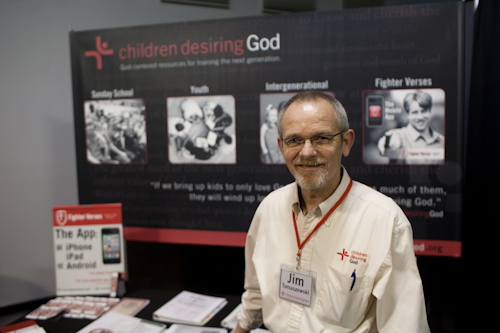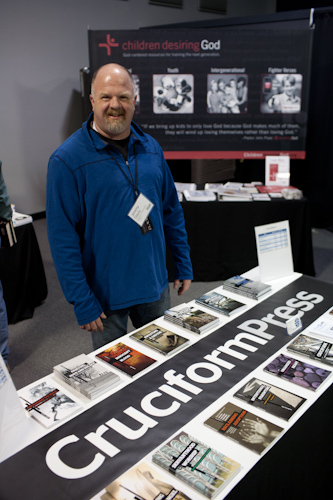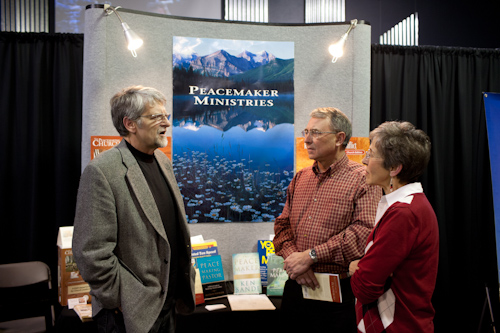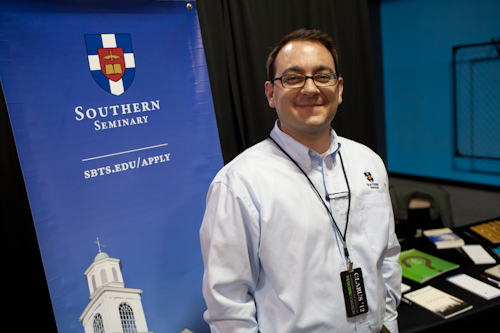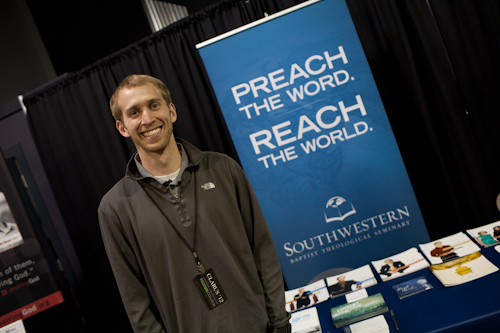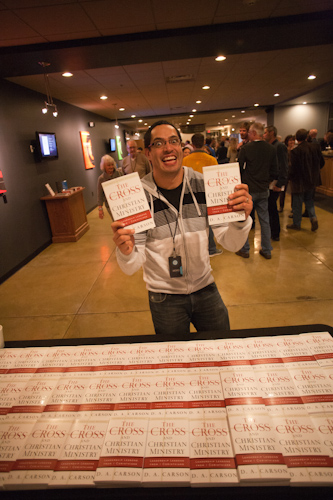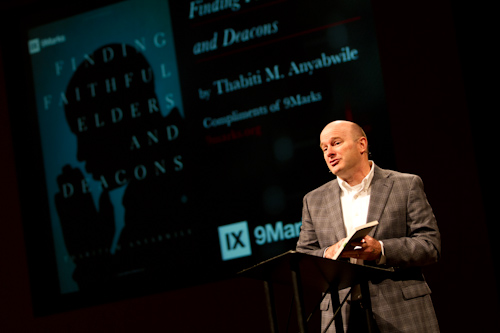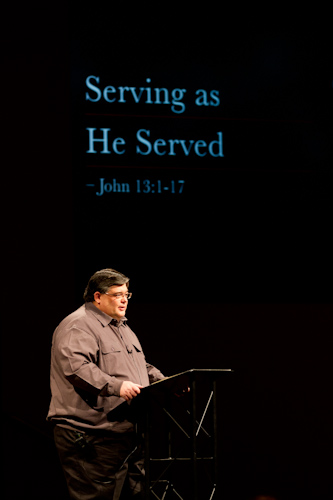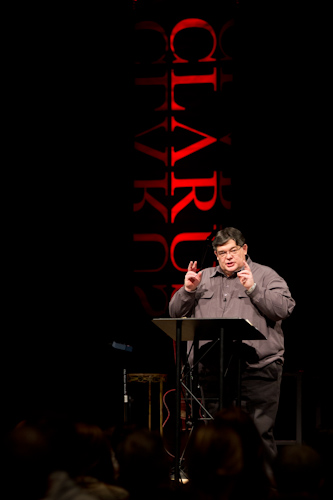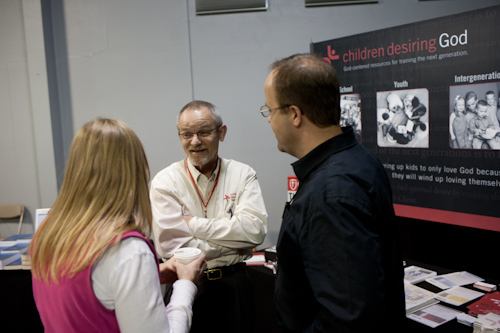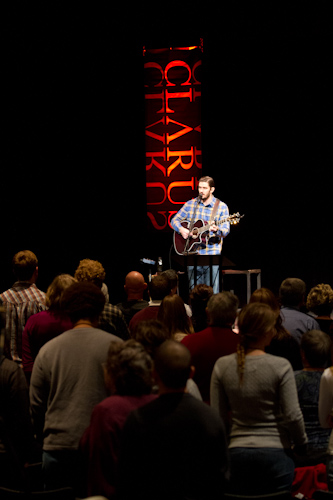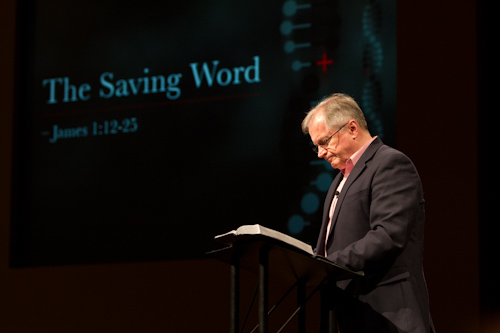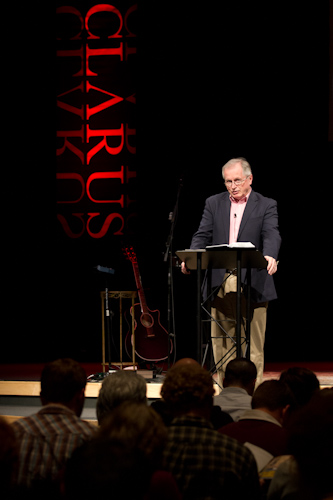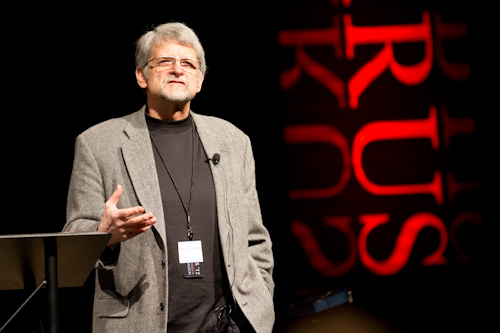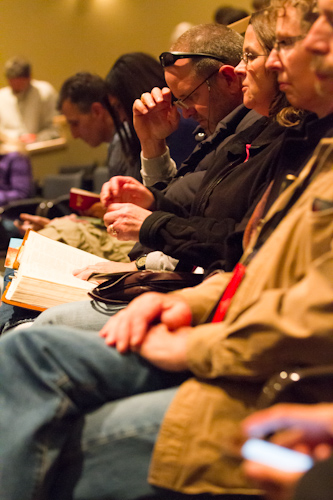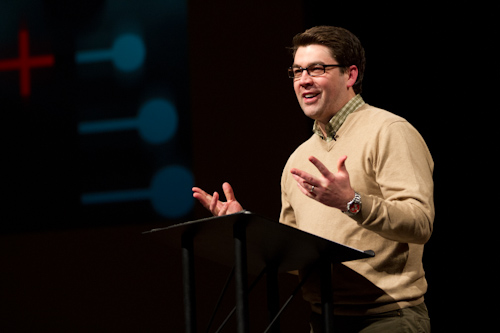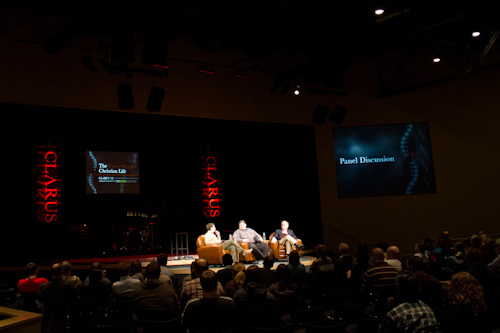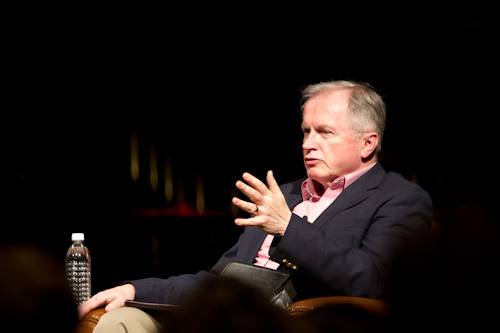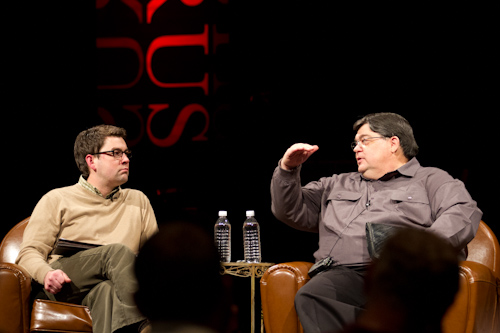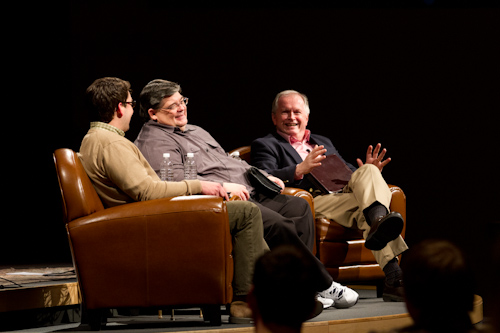Archive for March, 2012
Mar 13
Many Thanks to Our Clarus ’12 Sponsors!
We will do one more wrap-up post for Clarus after this one, pulling together links to audio, blog recaps, and photos from the weekend. But before we do that we simply must devote a post to thanking our sponsors.
Though it might not be immediately obvious, our sponsors not only help make Clarus great but they also help make Clarus possible. And it is an investment on their part to partner with us, shipping their materials and, for some, sending a representative with all the expenses that come with that.
The organizations that join us are the kind of organizations that we want to join us. They serve the agenda of our conference by encouraging and resourcing the church with God-focused and Word-faithful material. We love these organizations and encourage you to visit their sites and take advantage of the excellent services and resources they provide in loving support of Christ’s church.
Visiting Ministries
Jim Tomaszewski, from Children Desiring God
Ben Krueger, from Crossway Books
Jimmy Davis, from Cruciform Press
Rick Friesen, from Peacemaker Ministries
Jerod Harper from The Southern Baptist Theological Seminary
Kevin, from Southwestern Baptist Theological Seminary
Ministries That Gave Away Books
Baker Publishing, The Cross and Christian Ministry, by D.A. Carson
9Marks Ministries, Finding Faithful Elders and Deacons, by Thabiti Anyabwile
Christian Focus Publishing, Jonah: Navigating a God-Centered Life, by Collin Smith
Cruciform Press, Cruciform: Living the Cross-Shaped Life, by Jimmy Davis
Crossway Books, Warfield on The Christian Life: Living in Light of the Gospel, by Fred Zaspel
*This giveaway was for pastors who joined us at the Friday Pastors Luncheon
Visiting Publishers
- Baker Publishing
- Christian Focus Publications
- Crossway Books
- Cruciform Press
- Eerdmans
- Matthias Media
- New Growth Press
- P&R Publishers
- Shepherd Press
Bags, Mags, and Ads
Crossway Books was gracious to supply the conference with conference bags, and White Horse Inn was generous to supply a copy of Modern Reformation Magazine to all conference attendees. Many of the organizations above published ads in our conference booklet, but there were several others, including, The Council for Biblical Manhood and Womanhood, B&H Publications, The Holman Christian Standard Bible, Trinity Evangelical Divinity School, and Westminster Theological Seminary.
Mar 12
Sunday Recap: Carson, “Christians Living in the Last Days” – 2 Timothy 3:1 – 4:8
On Sunday morning, the last day of Clarus, Dr. Carson delivered a message, “Christians Living in the Last Days,” from 2 Timothy 3:1-4:8. Originally written from Paul to Timothy, this text is timely for all those living in the “last days,” the time between the resurrection and the return of Christ.
Sunday’s sermon was an excellent example of what both of our speakers this year are famous for – expositional preaching. Dr. Carson’s outline made clear what Paul said to Timothy and impressed on us the timeless weight of four imperatives critical for God’s people in these last days.
These last days, says Paul, will be characterized by “terrible times” (3:1). These times will be terrible because of the havoc brought about by the violent and wild rebellion of the ungodly – those who are set against God and his ways (3:2-9). Paul describes people with a string of eighteen traits. They are selfish, “lovers of themselves,” and “proud.” They are socially destructive, “abusive,” and “disobedient to parents.” They are “ungrateful,” “unholy,” and  their speech is “slanderous.” The list goes on. Many are even leading people astray with a form of godliness that is void of the gospel’s power, and some of them prey on the vulnerable.
As those who live in the last days, Paul’s exhortation to Timothy is God’s exhortation to us until the return of Christ:
1) Hold the Right Mentors in High Regard (3:10, 11)
In 3:10 and 11, Paul held himself before Timothy as an example worthy of following. In fact, with the preaching of the gospel, it is a string of one Christian following the example of another that explains the perpetuation of the Christian faith among us and throughout the world. What should we look for in a mentor? We should look for people who have their Bibles sorted out, who are characterized by faith, patience, love, and endurance. And as we grow into this maturity we should hold ourselves out as an example for others to follow, always following and leading others as we follow Christ.
2) Hold Few Illusions about The World (3:12-13)
In 3:12-13 Paul warns against persecution as evil seducers go from “bad to worse.” This is true, of course, of evil people in every generation and Christians should never be surprised by great evil in this world. The last century was the bloodiest in human history and there is no reason for us to expect that the next century should not be as bloody or worse. Of course, none of us are as bad as we could be. Even Hitler, for example, could have kicked the dog one more time. But we’re all on a trajectory. Neither Hitler nor the world’s other murderous dictators started out as bad as they ended up. If we are in Adam our trajectory is that of greater evil and a harder heart over time. If we are in Christ, our trajectory is that of greater godliness and a more humble heart over time.
3) Hold On to The Bible (3:14-17)
In 3:14-17, Paul reminds Timothy of his heritage and exhorts him to continue in that heritage of godly faith. Timothy’s first Bible lessons were from his mother and his grandmother, who related the Scriptures in a way that readied his heart to receive the cross-work of Christ has his saving hope. These Old Testament Scriptures, which lead to Christ, are nothing less than the very words of God, breathed out by Him through human authors so that what He wanted written was written down for us. It is to these Scriptures that Timothy must hold in the last days, and Timothy’s godly heritage is nothing to be taken for granted. Of course, that is true for us as well. While instruction at a young age does not guarantee faithfulness later, those who grew up learning the Bible have God to thank for that marvelous and irreplaceable gift.
4) Hold Out The Bible to Others (4:1-8)
In these terrible times, Paul makes an emotional plea: “I charge you in the presence of God and of Christ Jesus Christ, who is to judge the living and the dead, and by his appearing and his kingdom: preach the word” (4:1-2). This is the way that the characteristics of the age are countered in the church. There are many good things we should be doing by way of social and political involvement, but the one thing we must do is preach the Word and teach the Bible to the next generation. In time, none of us will be here, no matter how well known, and a new generation will take our place in holding fast to and heralding the Word of God.
Mar 11
Session 6 Recap: Panel Discussion with Carson and Zaspel
Editor’s Note: John Hunt is the Senior Pastor at Covenant of Grace Church in Albuquerque, NM. He is a member of the Albuquerque Chapter of The Gospel Coalition. This post is a summary of a Panel Discussion with D.A. Carson and Fred G. Zaspel from Saturday evening, March 10.
••••
The question and answer segment of the conference dealt with three areas related to the Christian life: sanctification, old nature/new nature, and pacifist/activist approaches to Christian living.
Asked for a good definition of sanctification, Dr. Zazpel pointed out four senses: (1) positional sanctification, wherein we are sanctified in Christ; (2) definitive sanctification, wherein we are sanctified or set apart by Christ in the gospel; (3) final sanctification or glorification; and (4) progressive sanctification wherein we are progressing in holiness. To this Dr. Carson pointed out that while justification and sanctification are distinct, they are not inseparable. Justification and sanctification flow out of our union with Christ.
Dr. Carson explained that holiness is really an adjective for God. He represented holiness as three concentric circles. The center circle is God Himself, or Holy, Holy, Holy. The second circle is those things associated with God. For example, the shovel in the Temple was holy, not in itself, but because it was related to God. The third circle represents people. It is at this point that morality enters the discussion. However, it is not so much morality that is in view. God is not telling believers to be moral because He is moral. Rather, He is calling believers to become peculiarly His.
Related to this issue is Warfield’s denial that Christians have two natures. Dr. Zazpel pointed out that for Warfield, Christians have been renewed and that the grasp of sin has been broken. During the conversation, Romans 7 was bought up and discussed. It seems that the bottom line is this: the Christian must deal with a renewed nature that must eradicate sin. It’s not like two natures are warring against one another. Rather, it is the “I†who struggles with remnants of sin, but the “I†does so from the vantage point of a new, or renewed nature.
Closely related to the above discussion was the question posed to Dr. Zazpel regarding Warfield on “Perfectionism.†He pointed out that one cannot speak of “Perfectionism†without referring to the type one has in view, e.g. Wesleyan Perfectionism. Closely related is the Higher Life movement the roots of which go back to Keswick, England and the Keswick Theology that emerged. The emphasis here was not perfectionism, but total surrender, living a victorious Christian life, letting go and letting God, etc. Dr. Carson added that for both Warfield and Luther, Christians will always be saints and sinners. A memorable saying offered by Dr. Carson (and I don’t think I have it exactly right) helped immensely: “I’m not what I ought to be; I’m not what I shall be; I’m not what I shall be, but I’m not what I was. By the grace of God, I am what I am.â€
There was much more than here represented, but I close on a part of the discussion, which was very meaningful to me. The question was asked concerning a debate on the blog of TGC regarding rest and effort. Some emphasize the need to rest in Christ. Others emphasize the need to exert oneself in the Christian life. As was pointed out, one could preach “Do, Do, Do,†which destroys God. On the other hand, one could preach “Done, Done, Done,†which results in a do nothing approach. Grace has entitlements of doing. So, what is the balance? The balance is found in Philippians 2:12-13, the Christian is to work out his salvation, because God is working in them. Every work of man requires the antecedent work of God.
Mar 11
Session 5 Recap: Zaspel, “Forgiving As Forgiven” – Matthew 18:15-35
Editor’s Note: Michael Kelshaw is the Head Minister at Trinity at the Marketplace in Albuquerque NM. He is a member of the Albuquerque Chapter of The Gospel Coalition.  This post is a summary of Fred G. Zaspel’s message from Saturday evening, March 10, “Forgiving As Forgiven,” from Matthew 18:15-35.
••••
On Saturday evening we had the great privilege of listening to Dr. Fred Zaspel preach on Matthew 18:15-35. He unpacked the passage under the title “Forgiving As Forgivenâ€. The title brings out the main theme of the passage, which is about forgiveness. Highlighting that at the heart of the gospel is the fact that our sins are forgiven, as those who are in the kingdom of God we are a forgiving people. Dr. Zaspel brought this out of the text in three ways.
First of all, the goal of forgiveness is reconciliation (vv. 15-20).
In other words, forgiveness aims at reconciliation. In (v. 15), Jesus shows that the goal, the objective in all of this, is to gain our brother. In the kingdom of God, forgiveness is the dominant note. God brings sinners into fellowship with Himself through the forgiveness of our sins. As those in Christ, we have fellowship with Him, and by His grace are able to forgive others.
The wonderful reminder here is that while we are rightly ready to go through all of the stages outlined in these verses, the reason that we attend to these steps is for reconciliation. We are to tell him his sin, in order to gain our brother.
Secondly, the cost of forgiveness is the payment of the debt (vv. 23-27).Â
In these verses the king had to absorb the debt, he had to pay the debt himself. In (v. 27), in order to forgive the servant, the master had to pay the debt himself. In forgiveness the debt is paid by another, forgiveness demands substitutional payment of the debt. Here is the meaning of the cross of Christ, that Jesus stood in the place of sinners, absorbed the debt of others, and paid the debt in full. We stand before God with an incalculable debt that we cannot pay ourselves, and Jesus in our place has paid the debt in full. In order to forgive our brother, we have to absorb the debt, and make payment for it ourselves, and so Jesus is holding up His cross to govern the relationships in His kingdom.
The helpful reminder here is that as those who have been forgiven an immeasurable debt by Jesus in our place fully and freely, we are able to forgive others in that same way. No matter what it costs, it is nothing compared to the forgiveness that has been given us.
Thirdly, the demand of forgiveness is yet more forgiveness (vv. 21-23; 28-35).
Again, the gospel is the model. In order to be saved there is full pardon of our sins, and so as those in Christ, there must be no end to the forgiveness that we are willing to grant to our brother. In (v. 21) Peter asks, in essence, how much is enough. Jesus answers the question by driving home the fact that there are to be no limits on how much you forgive your brother, as He shows in (v. 22).
The important reminder here is that the mercy that we have received is the mercy that we will show to our brother. We delight in this mercy, and as those who have been forgiven an immeasurable debt, we can forgive others. So the people in the kingdom of God are a forgiving people.
Let us recall frequently that we are a people who have been forgiven an immeasurable debt, and in the grace of God are able to forgive others. Let us remember that this is part of living the cross-shaped Christian life.
Mar 11
Photos from Saturday at Clarus ’12
Yesterday we posted photos from Friday night’s opening sessions for Clarus ’12. Our second day of Clarus is by far the busiest day of the conference, with five sessions – two in the morning, one in the afternoon, and two at night. Here are some photos from throughout the day:
Saturday Morning
Saturday Afternoon
Saturday Evening







